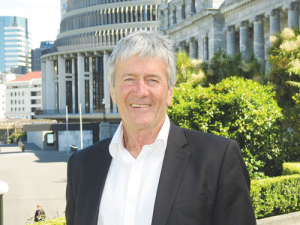OPINION: It's time for agriculture to rank higher in Cabinet.
In 2005, Jim Anderton (RIP) ranked third in Cabinet. He was Minister of Agriculture (and fisheries, forestry and biosecurity) and Associate Minister of Health and for Tertiary Education.
In 2008, still third-ranked in Cabinet, Anderton released a guide for government advisers called ‘Rural Proof Your Policy’. It stated that ‘Rural Proofing is a process for considering the circumstances and needs of the rural community (rural people and rural businesses) when developing and implementing policy’.
Policy makers were urged to identify positive and negative implications for rural people, and to seek advice from organisations operating within the rural area or representing people who lived and operated businesses. They were asked to assess whether the proposed policies might affect urban people differently from those that lived and operated businesses in rural districts.
Stark data were presented – over 86% of New Zealanders were classed as urban and occupied only 2.7% of the land area.
That left 13.8% of the population (including towns under 1000 resident population) on the rest of the land. The difference in population density was clear – as was the point about difficulty of understanding rural issues from any CBD (central business district).
If disparities were apparent, the guide stated that proposed policies should be amended to ensure the use of mitigation measures where practicable, and that ministers and relevant departments should be informed of any unresolved implications.
Twelve years on, and it has been downhill for the ministers dealing with food production ever since – slip sliding down the Cabinet rankings, while the sector has continued to contribute to a growing export revenue and to productivity gains for labour and capital inputs. It has been a massive achievement, and Covid-19 has allowed society to recognise the importance of the sector.
The recognition of the importance of food is global.
Throughout the pandemic, people have been searching for ‘healthy’. The International Food Information Council has reported that 85% of people changed their eating habits during Covid, with over 60% now saying that they consider how ‘healthy’ food is before making a purchase. Taste is still number one (88%), followed by price (70%). Convenience ranks 4th (52%) and environmental sustainability 5th (34%).
Only 3% of the people surveyed expected to eat less meat in future and the perceived healthfulness of animal protein (meat and milk) had increased from 2019. Independently, Hartman has reported a 76% increase in consumption of dairy milk.
All of this is good news for New Zealand food producers – we know that the mouthfeel of grass-fed meat, as well as the taste, exceeds that of grain-fed. And Omega 3s are higher in grass-fed than grain-fed product.
More good news is that Auckland think-tank, Koi Tu, led by Professor Sir Peter Gluckman (who was the Prime Minister’s Chief Science Advisor for a decade), has highlighted the importance of the sector and all its attributes. The Future of Food & the Primary Sector: the journey to sustainability is part of a suite of papers under the banner of The Future is Now. It states that ‘New Zealand is a country with high social and environmental values that produces safe, healthy food with a relatively low carbon footprint’, and makes some important points for enabling the sector to do even better.
To have an external body validating what the primary sector has been saying for some time might lead to some action. Education, scientific research and technology, including better rural broadband coverage… all need fixing. And the primary sector, as a whole, needs a strategy.
As ministers work through the various suggestions, and some of their current policies, they might like to use Minister Anderton’s guidelines to see if what their policy makers are proposing will allow what Koi Tu suggests.
Rural proofing equals New Zealand proofing… and maybe the importance of the primary sector in economic recovery will allow the portfolio to rise in the Cabinet rankings again.
• Dr Jacqueline Rowarth has a PhD in Soil Science and is a farmer-elected director of DairyNZ and Ravensdown. The analysis above is her own. This email address is being protected from spambots. You need JavaScript enabled to view it.



















